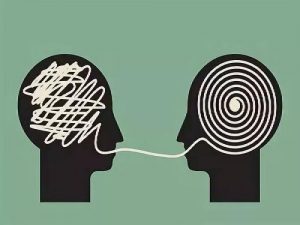Have you ever experienced the feeling that jumbled thoughts hovering over your head? Living in such a cluttered world, it usually takes a lot of efforts to comb through what is going on with the proper logic transition. Logical thinking helps tremendously to pave the way to an organized life. Noticing the importance of thinking logically, along with continuous practice in several ways, you will be competitive in the workplace.
Why does it matter?
- What is logical thinking?
Logical thinking refers to the process of concluding observation and analysis based on facts. During this process, biases and assumptions are out of place. For example, a logical thinker may develop a strategy for employee benefits based on an assessment of product quality.
- Why is logical thinking critical?
Not only does your career or life quality benefits from logical thinking, but it also adds value to individual development. Arranging ideas in a problem in a chain-like progression requires the ability to handle with fluid knowledge without guidance. Students learn to quickly grasp concepts when they are building up a structure for reasoning.
Logical thinking makes people independent. Arranging thought keeps children from quick answers; it empowers learners to question hypothesis and think for themselves; formative assessment is building up to test known fact. As a team player, you perform better by curbing the emotions, because you are accustomed to intellectual self-improvement.
How to improve your logic?
- Know yourself
Know where your energies went. Keep a diary recording the thoughts for a day. You can use charts or diagrams to depict the percentage of different ideas or to visualize the timeline of your mind flow. If you find it hard to recall, use a voice recorder to grasp fleeting thoughts by talking out loud in time.
It is time to reorganize after gathering information. Concentrating on the main focus is essential as time is limited. From the straightforward chart, as described above, you can quickly notice the distractions. Prioritize the thoughts that worth effort and discard the others.
- Clear out distracting thoughts
It is tricky to set aside entertaining ideas. A board game doesn’t take precedent over an annoying essay. However, your rising-up stress level tends to slow you down. There is a recommendation: mindful meditation.
Meditation helps to anchor yourself by controlling the in and out of breath. This practice provides patience and space to your life with kindness. Focus on the breath, and keep the wandering attention back. From time to time, you will learn to recognize the root of anxiety and take a pause from that to reallocate the energies attentively.
- Develop the habit of reasoning
First, avoid biases and set up an objective perspective. Be flexible to change your perspective by understanding how your preferences have influenced your judgement. Even if a claim is contradicting your long-held belief, jump to another level to reconsider your ultimate conclusion.
Develop the habit of questioning. Check the sources of every information collected to hone the questioning skill. Investigate deeply to find out if the data is questionable.
Clarify and organize your thoughts effectively. Use a mind map to declutter the knotty problems, presenting the relationship between the collected information. Find out which option has the highest value before weighing the pros and cons of all the solutions.
- Train your mind
Your brain should learn to rewire itself. Engaging in mental practices pave the way to a sharper brain. Here are several ways to be more logical.
Improve memorizing ability. Try to remember as many details, tasks, and happenings in a day as you can. Intentionally give yourself a test by committing a grocery list to memory occasionally. Having a grasp on a new language, learning another instrument, or cooking according to an original recipe requires logical thinking by devising your strategy.
